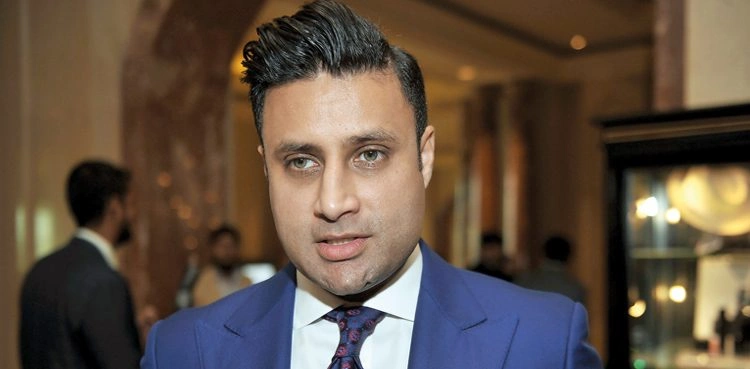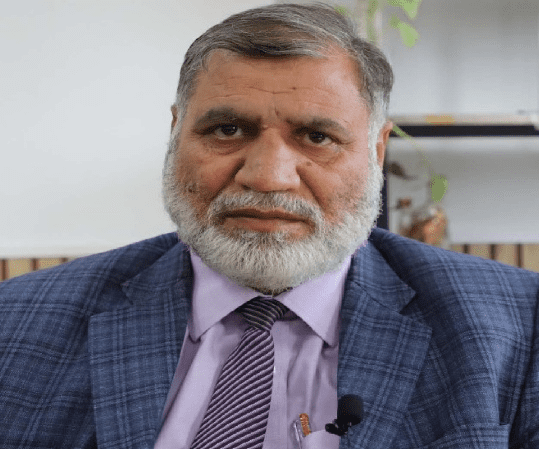Zulfi Bukhari and the Performance of Principle
Zulfi Bukhari’s rapid change from a struggling former tourism minister to a self-proclaimed guardian of democracy is not the change of a seasoned politician; it is the latest scene in a long-running political farce. Here is a man who, during his short and mostly useless time as Pakistan’s tourism czar, couldn’t even fix a failing portfolio. Now he is giving high-minded talks on constitutionalism, institutional ethics, and democratic morality. The irony is mind-boggling, and to be honest, the hypocrisy is tiring.
From Politics in the Drawing Room to Digital Sermons
Zulfi’s ascension in the Pakistan Tehreek-e-Insaf (PTI) had nothing to do with his beliefs or desire to serve the public; it had everything to do with being close to Imran Khan. There was no grassroots activism, public mandate, or electoral merit when he entered politics. He was dropped in from above, without being elected, tested, or connected to the realities of how Pakistan is run. Without a constituency or a real portfolio, he was never relevant in politics. Now that he’s losing relevance, he’s using lies as currency, dealing in selective truths and revisionist history on digital platforms that are distant from home.
A Convenient Forgetting of His Own Record
It’s interesting how Zulfi and his fans easily forget about his own shady past. His overseas holdings, his quiet during PTI’s most repressive times, and his closeness to spiritual leaders who are not elected are all ignored. The man who said little when the media was quiet, institutions were pressured, and opposition was made illegal now wants to be seen as a champion of freedom. This isn’t a new idea; it’s just taking advantage of people.
We’ve seen this happen previously. It’s not new. Lose ground in politics? Put the blame on the military. Lose in court? Assault the courts. Fail at running things? Cry conspiracy. This isn’t fighting back; it’s running away. A frantic attempt to turn political failures into victimhood and legal responsibility into martyrdom.
The Fiction of February 8
Zulfi Bukhari, who is currently in a luxurious exile, says that Pakistan’s democracy was “shattered” on February 8. That day, PTI’s illusion was shattered. They thought they could break the law, set fire to institutions, and cause turmoil, but still be welcomed back into power without any questions. Democracy didn’t perish; it started to get better after May 9, when the government finally made a clear distinction between legitimate opposition and flagrant treason.
To be honest, civilians aren’t being convicted in military courts for voting or waving flags. They’re going to be punished for breaking into sensitive military bases, stealing from the government, and disrespecting symbols of national sacrifice. Not only is calling these actions “voter suppression” wrong, it’s also quite hazardous.
Not Ballots, But Minds Are Being Rigged
The true rigging wasn’t at the polls; it was in the minds of millions, thanks to PTI’s cult-like propaganda operation. PTI turned devotion into a personality cult, turned political losses into huge conspiracies, and used people’s feelings against state institutions. While leaders like Zulfi Bukhari stood by, nodded along, or posed for carefully planned social media moments, institutions were weakened, the judiciary was attacked, and the media was silenced.
Zulfi now labels the people who were imprisoned following May 9 “political prisoners“. Shah Mehmood Qureshi and Yasmin Rashid are not in jail for innocuous political slogans; they are on trial for planning and supporting deadly attacks on government buildings. Making treason seem like activism doesn’t make it noble; it makes it dangerous.
Imran Khan: Well-Liked, But Not Innocent
People who support Zulfi and PTI often say that Imran Khan is innocent since he is so popular. But let’s be clear: being popular doesn’t mean you’re safe. Even while cult leaders have followers, that doesn’t make them less guilty of their actions. Imran Khan is in jail because he was charged with corruption, hiding unlawful assets, and inciting violence against the exact institutions he used to lead. In a constitutional republic, being popular can’t and shouldn’t be a way to get out of jail.
The Strange Story of Bushra Bibi
Zulfi and his friends are calling Bushra Bibi’s “mental torture” a form of political persecution. But the real national pain was seeing a woman with no official job have so much power over state matters, from bureaucratic appointments to property deals that were shrouded in mystery. This isn’t state oppression; it’s the state finally holding people in power accountable for their actions through legal prosecution based on facts.
The YouTube Resistance: Is It Journalism or Jihad?
In a last act of stupidity, Zulfi wants us to think of social media trolls as brave reporters. They are not fighting for the truth. A lot of them are criminals who are deliberately breaking the law while making money off fear and false information on YouTube. They stir up trouble, promote rebellion, and glorify violence, all in the name of “press freedom“. Where was Zulfi’s concern for journalism when PEMRA was utilized to shut down criticism during PTI’s time in power? When independent media was shut down and anchors went missing, Zulfi was nowhere to be seen, except in favorable pictures at Bani Gala.
Memory Is the Enemy of Lies
Zulfi Bukhari’s story isn’t a political ideology; it’s a manufactured soap drama. In his perspective, criminals are heroes, arsonists are activists, and fraudsters are wise men. But Pakistan doesn’t forget. It still sees the pictures from May 9. It remembers the attacks that were planned, the disrespect, and the disorder. It remembers how PTI’s leaders stayed quiet about it.
No amount of beautifully produced vlogs or podcast speeches can make that memory go away. The facts stay the same. The responsibility is still there. Democracy doesn’t work when people forget things on purpose. It’s based on the rule of law, which Zulfi Bukhari appears to only remember when it works for him.








